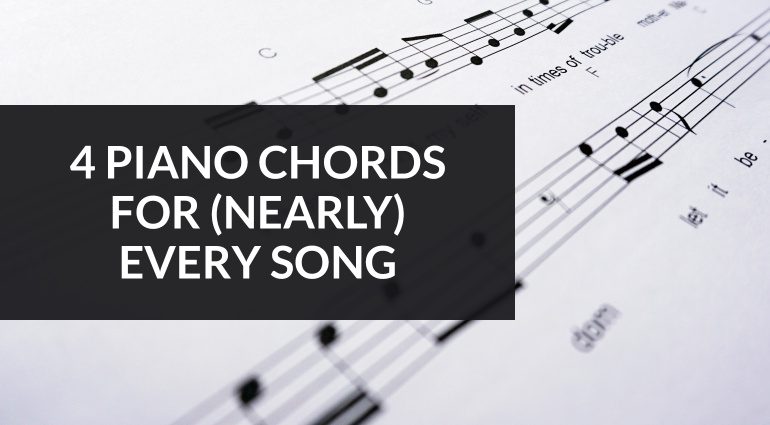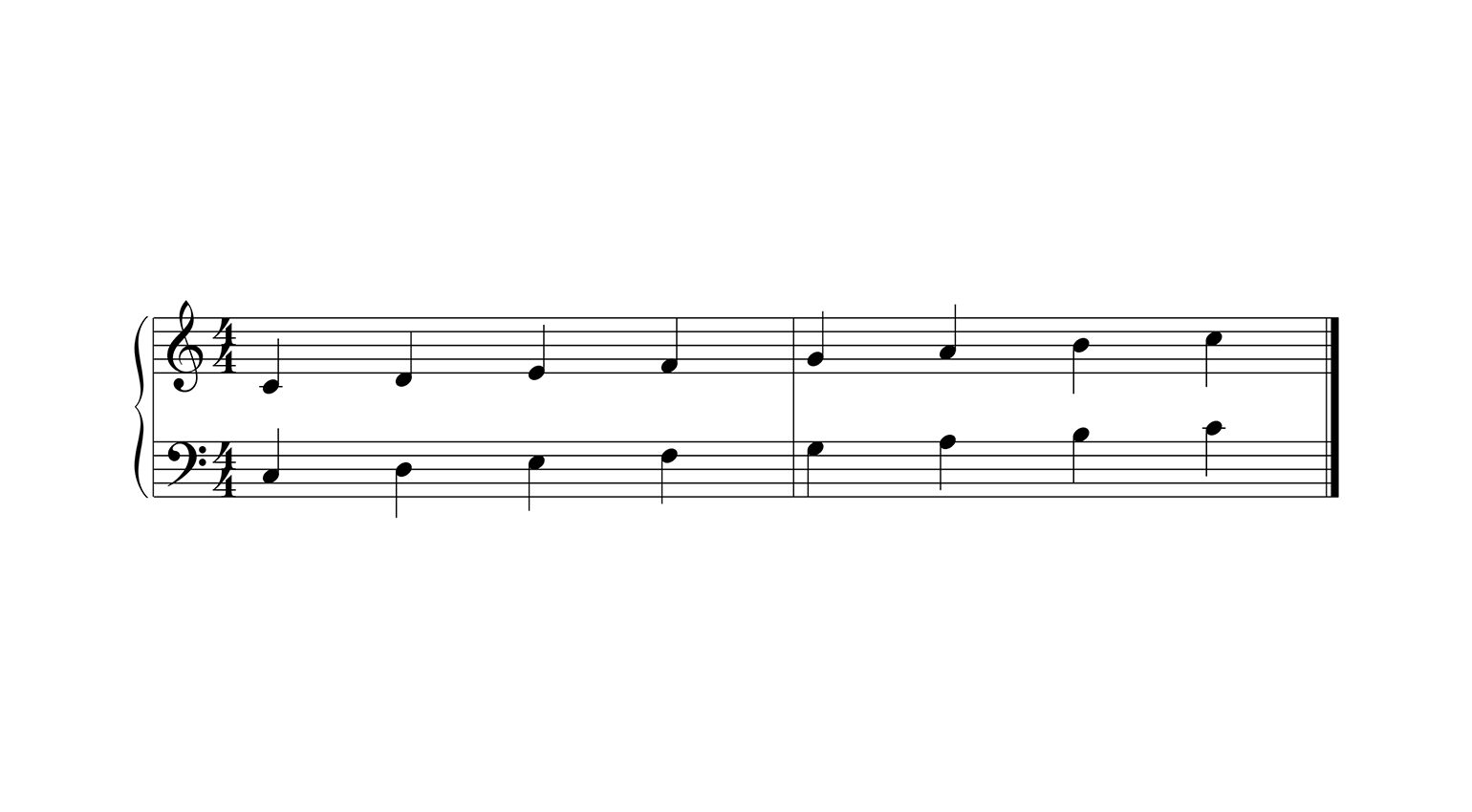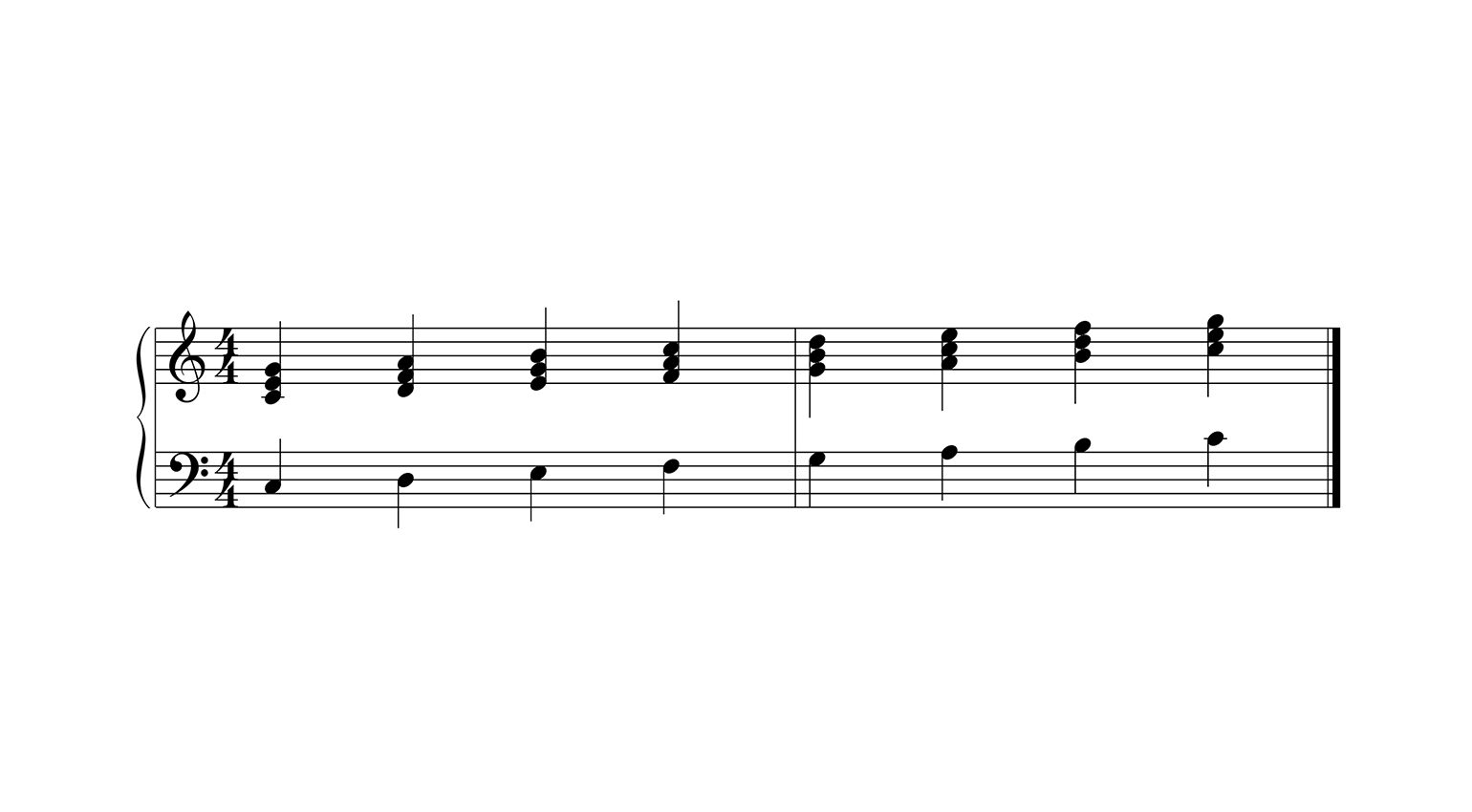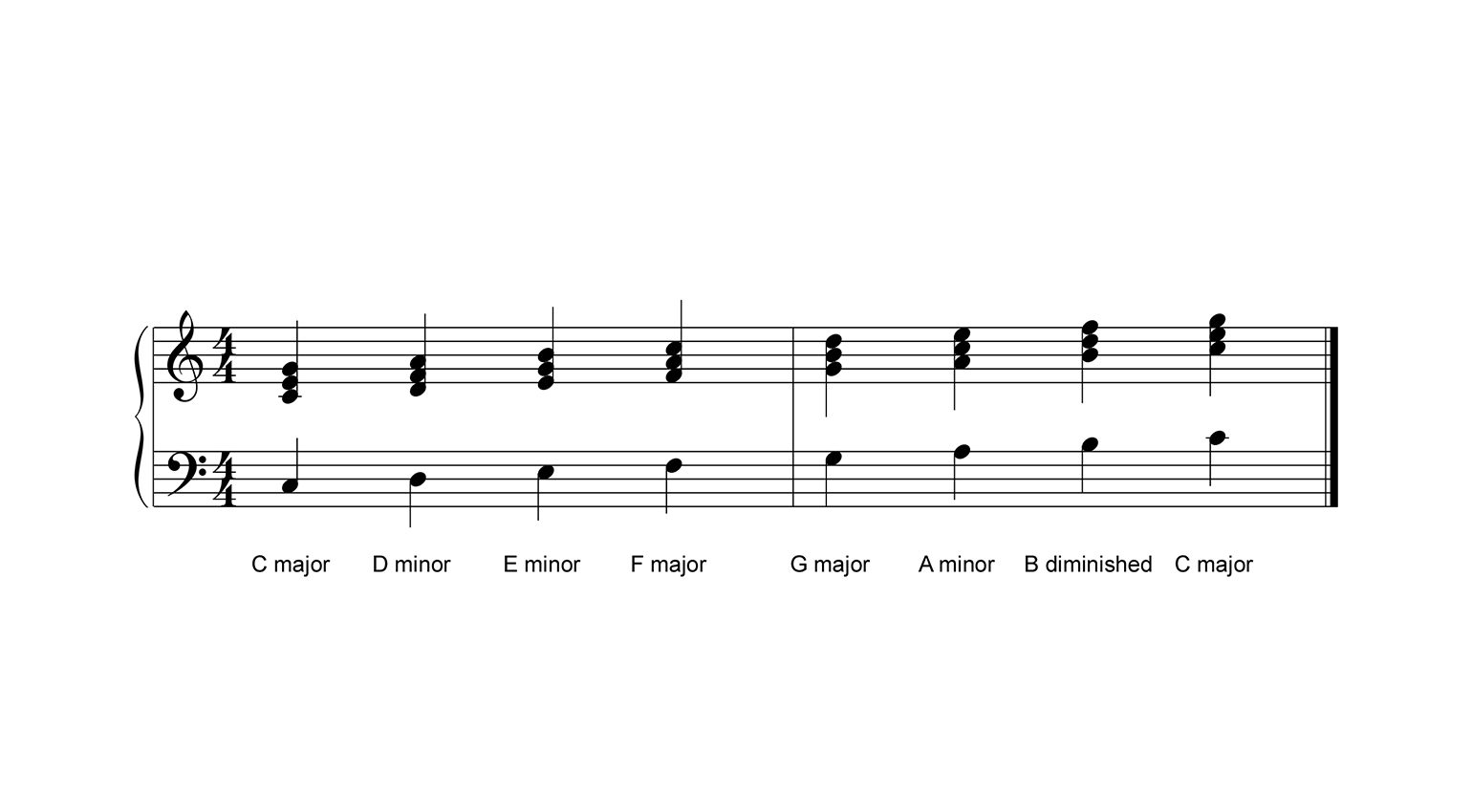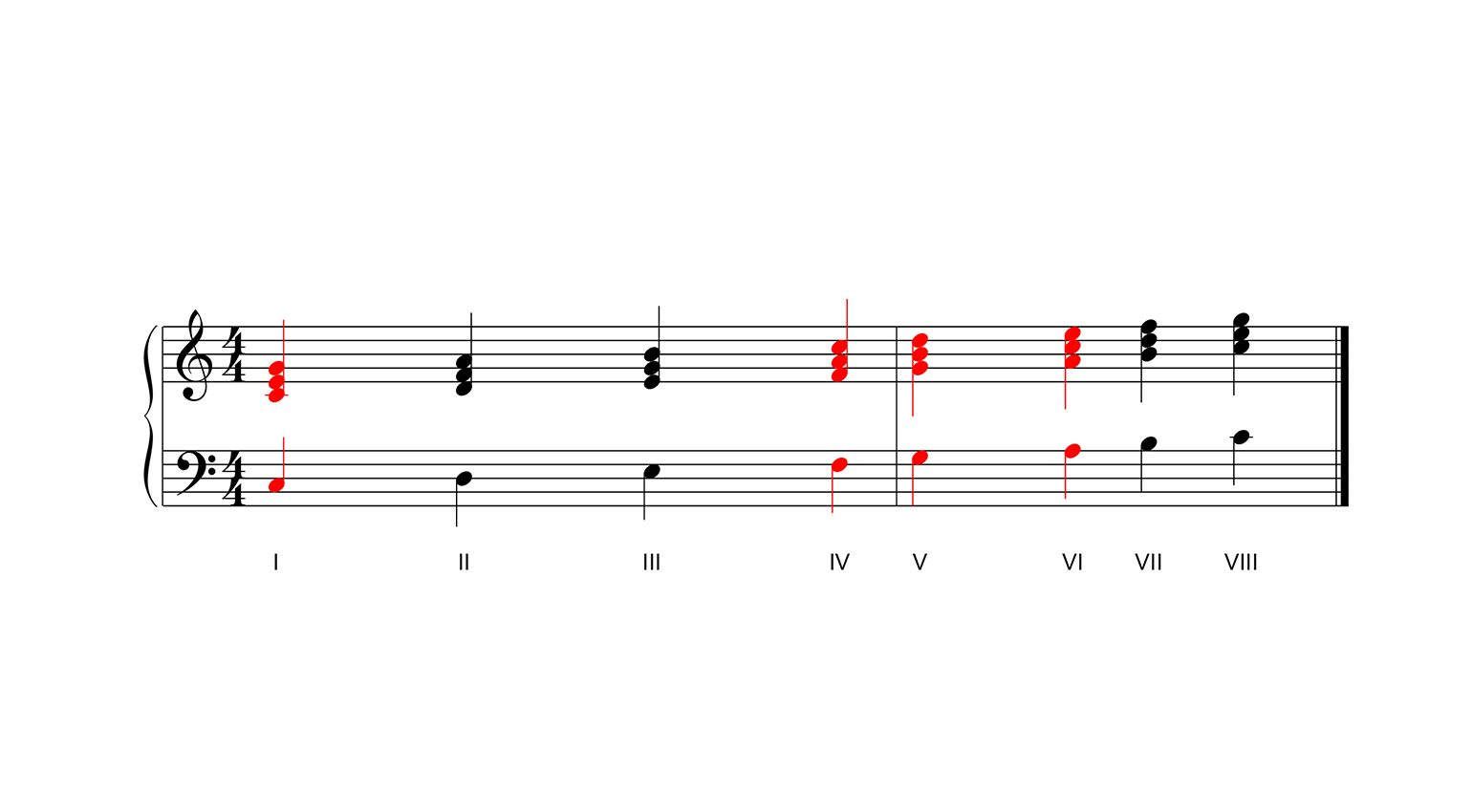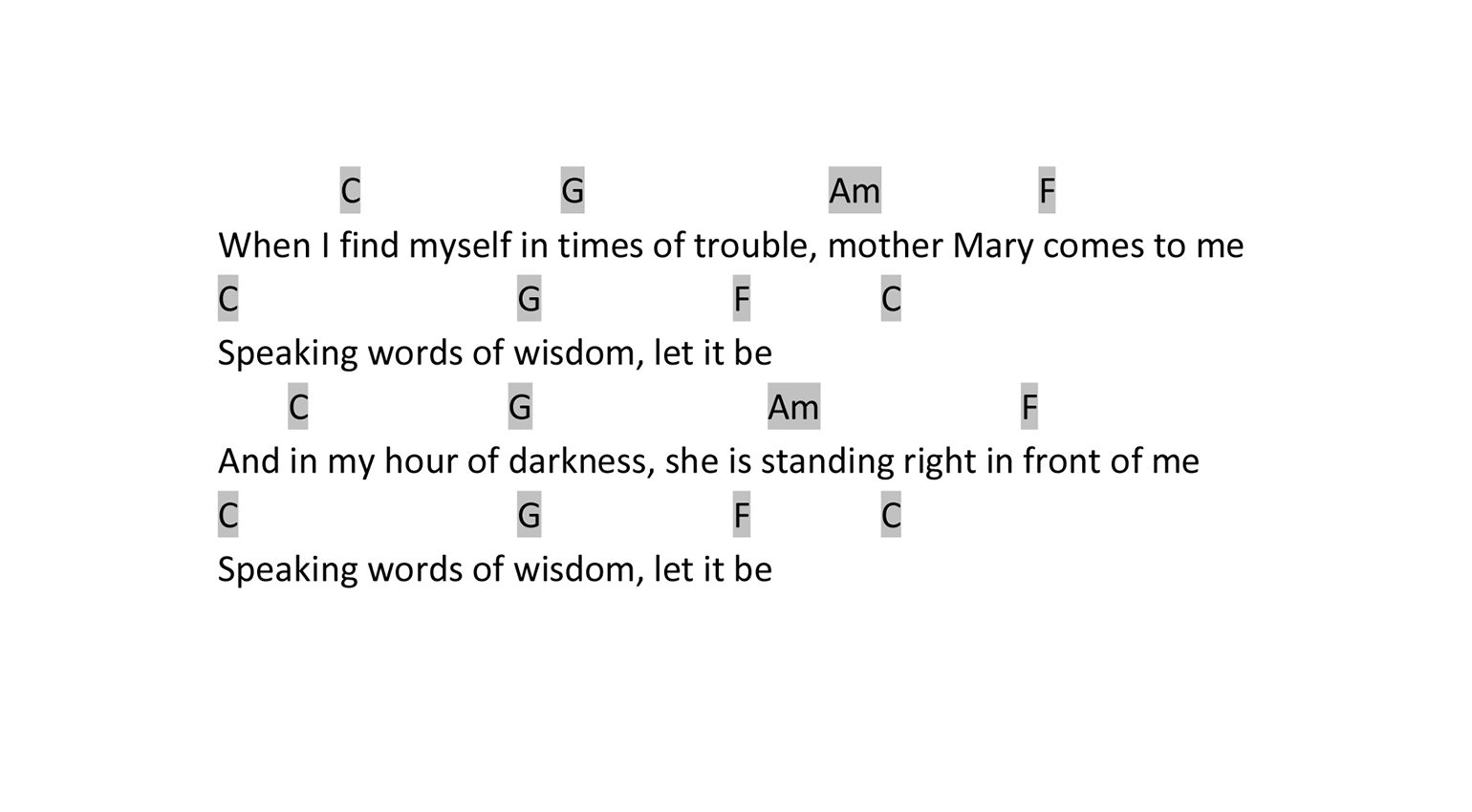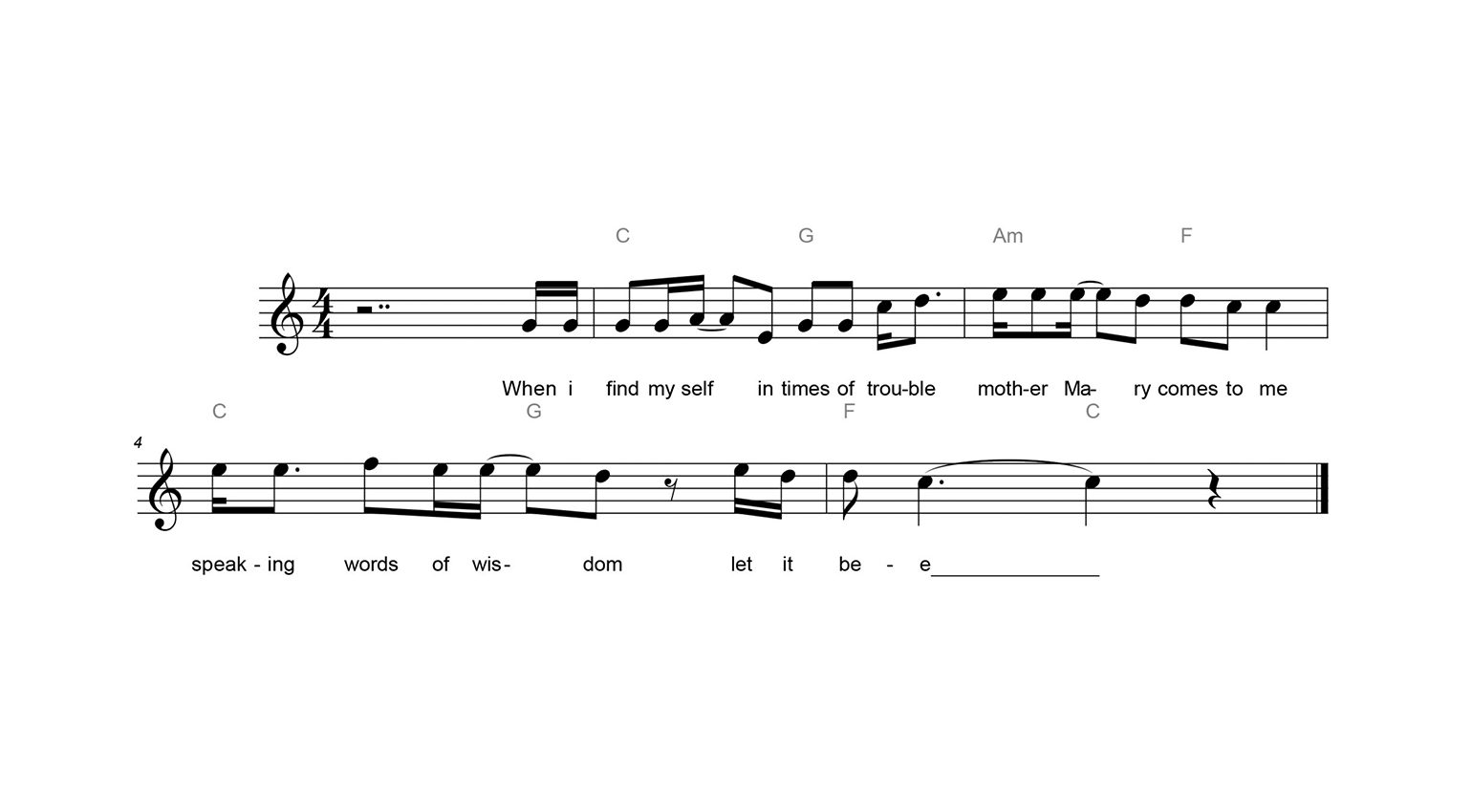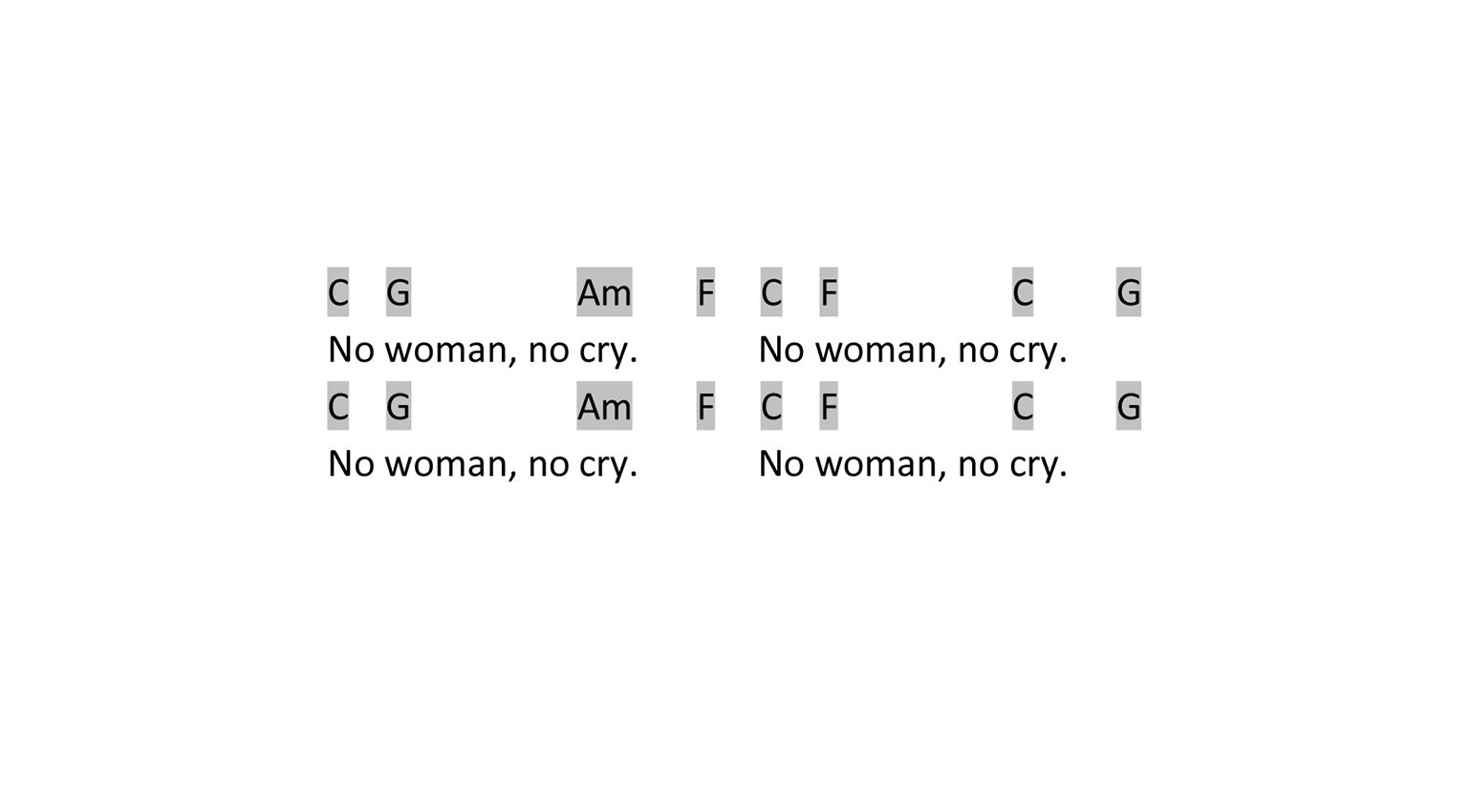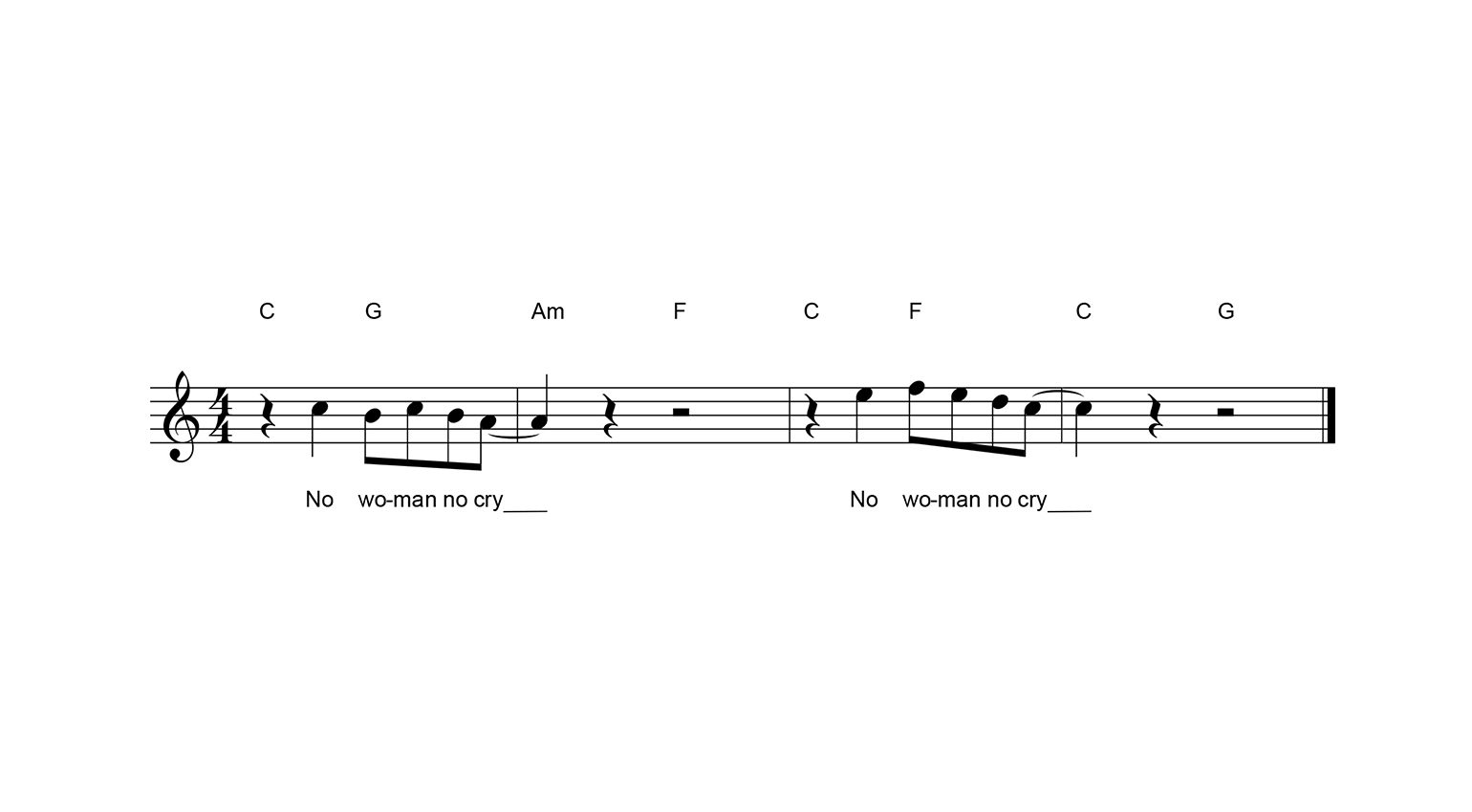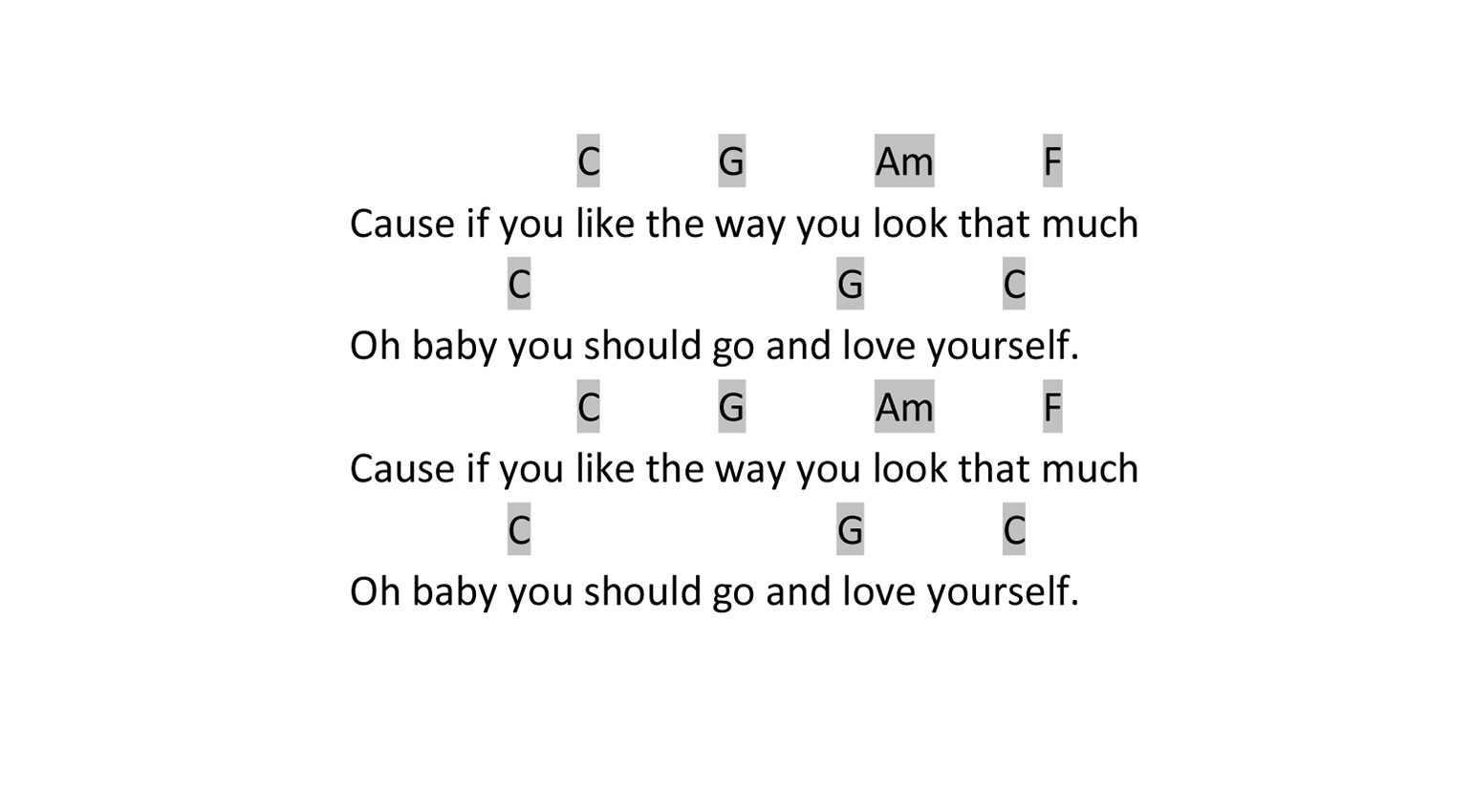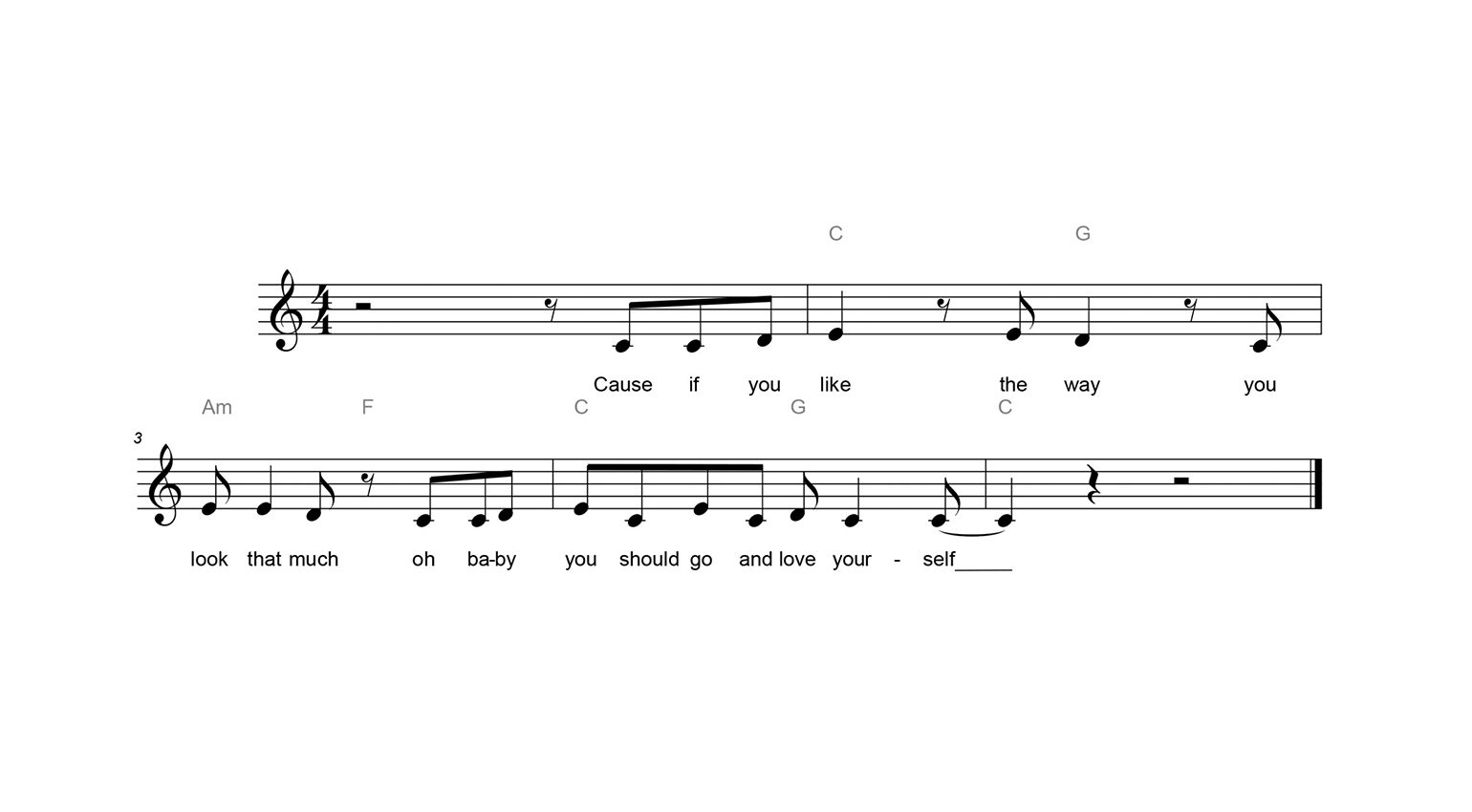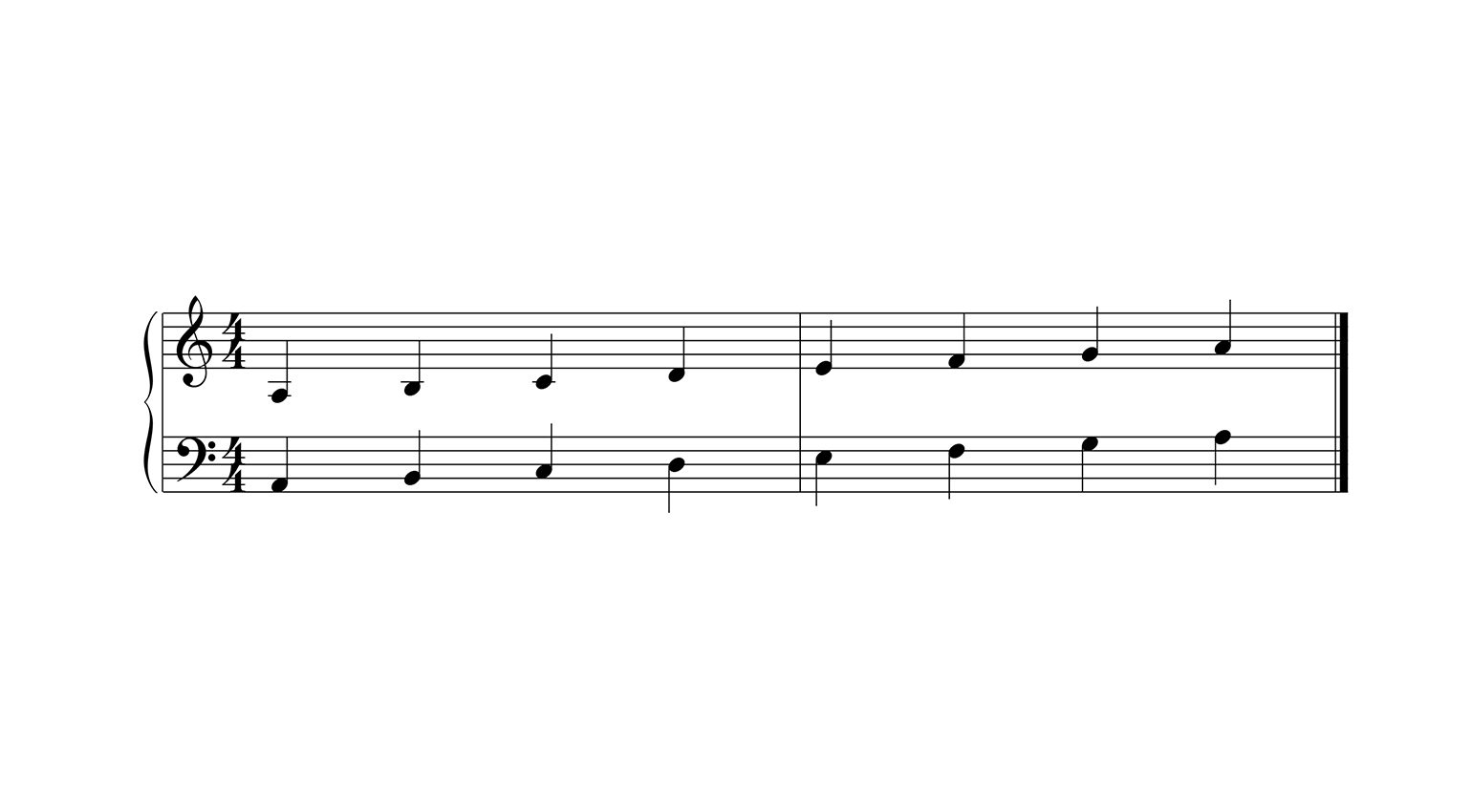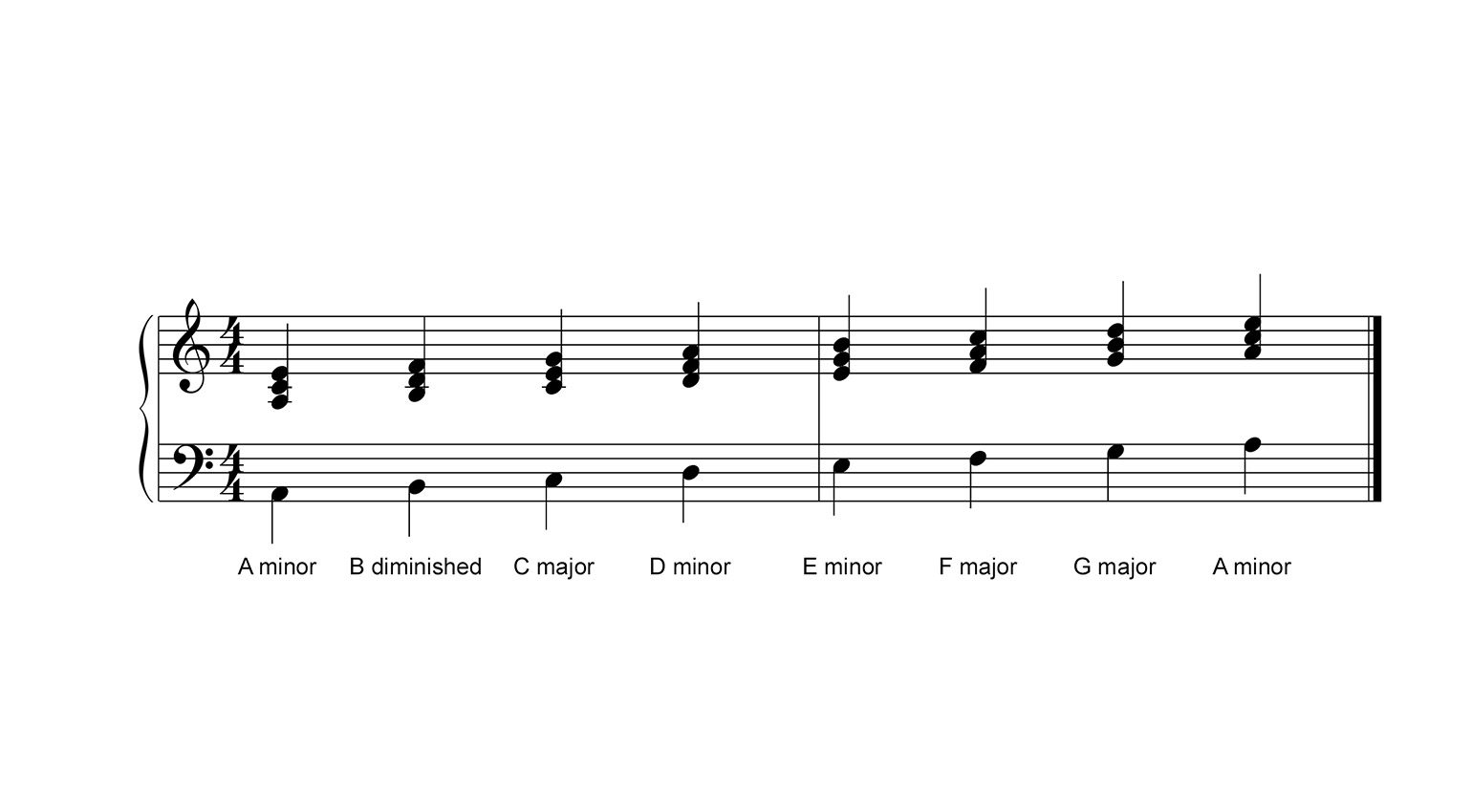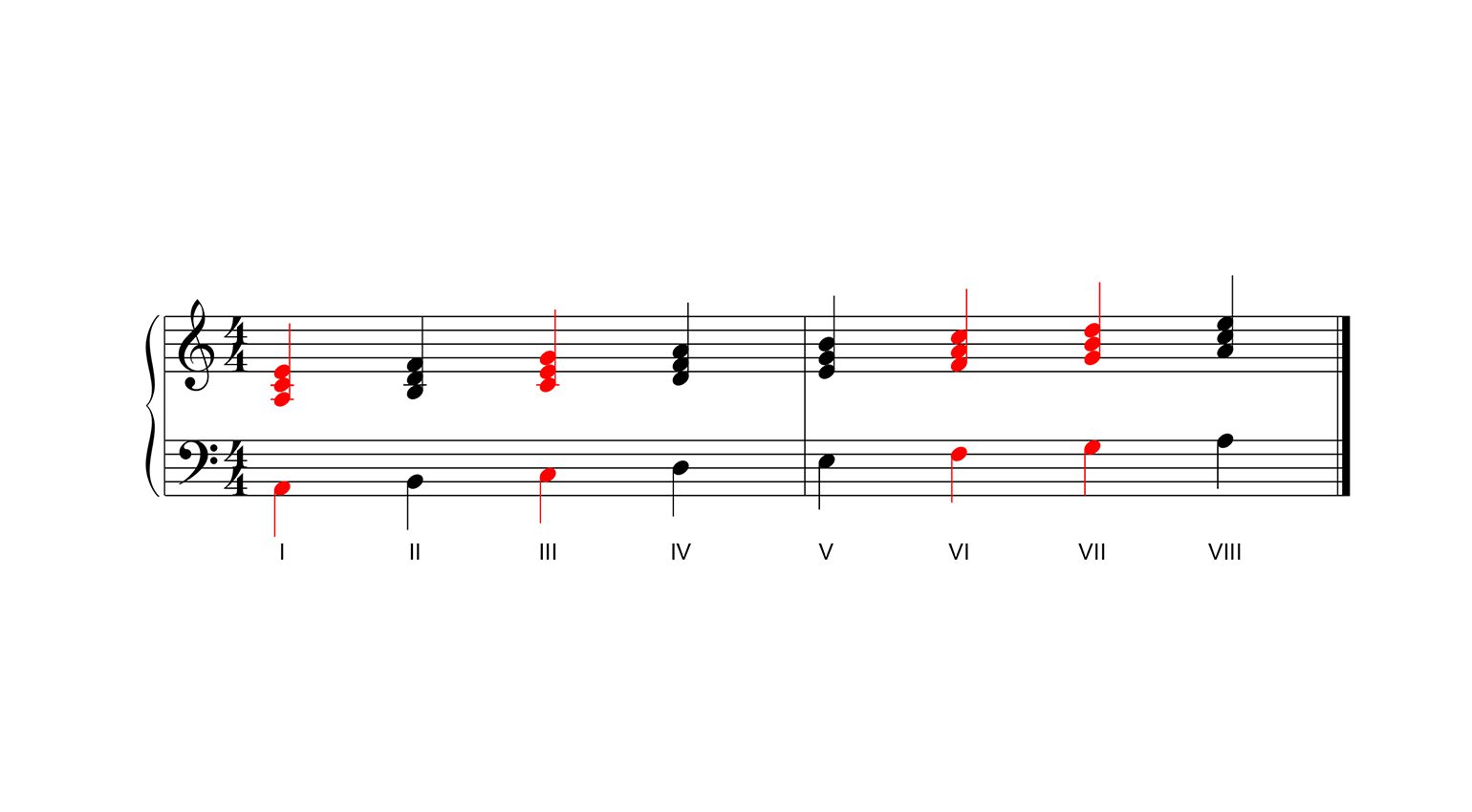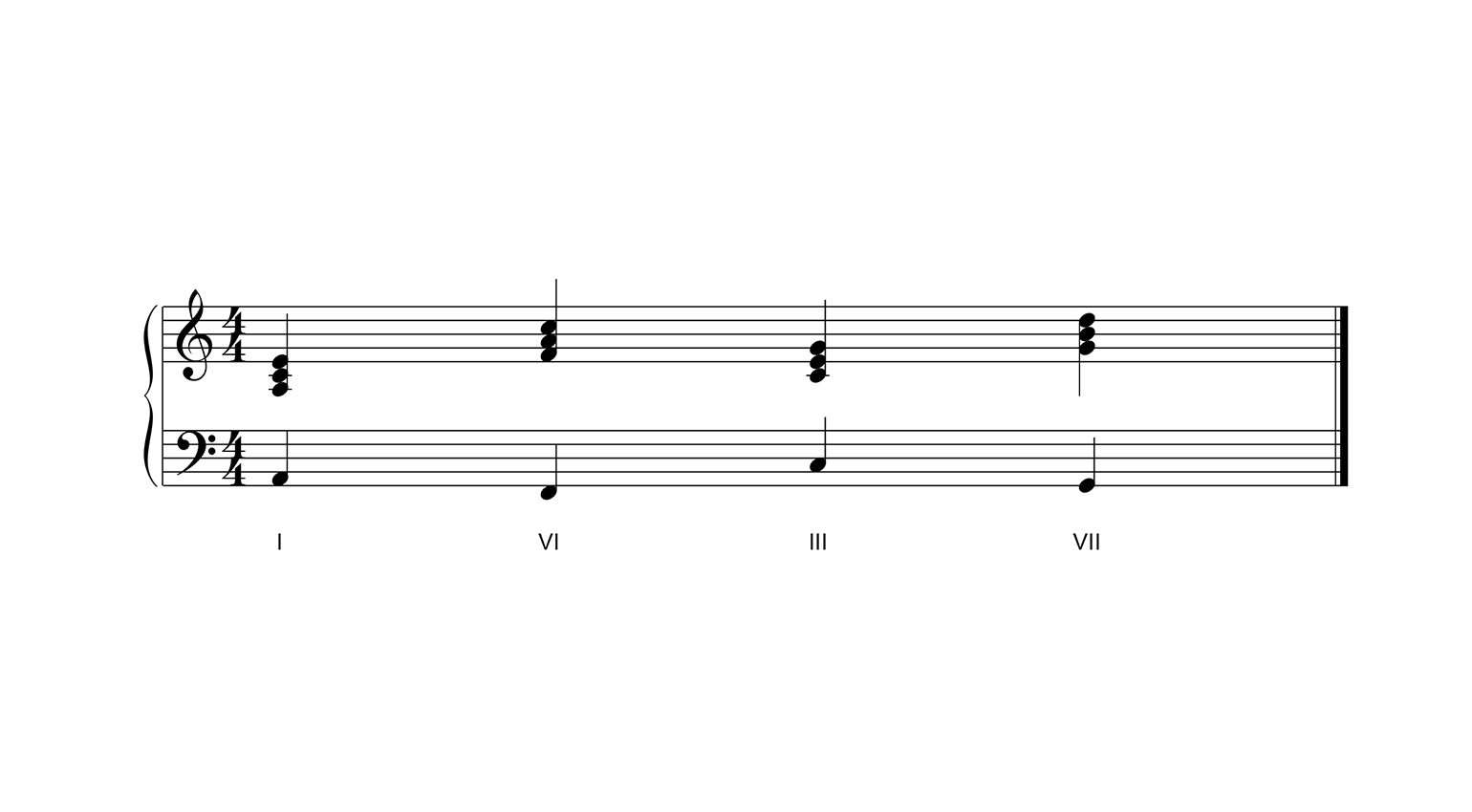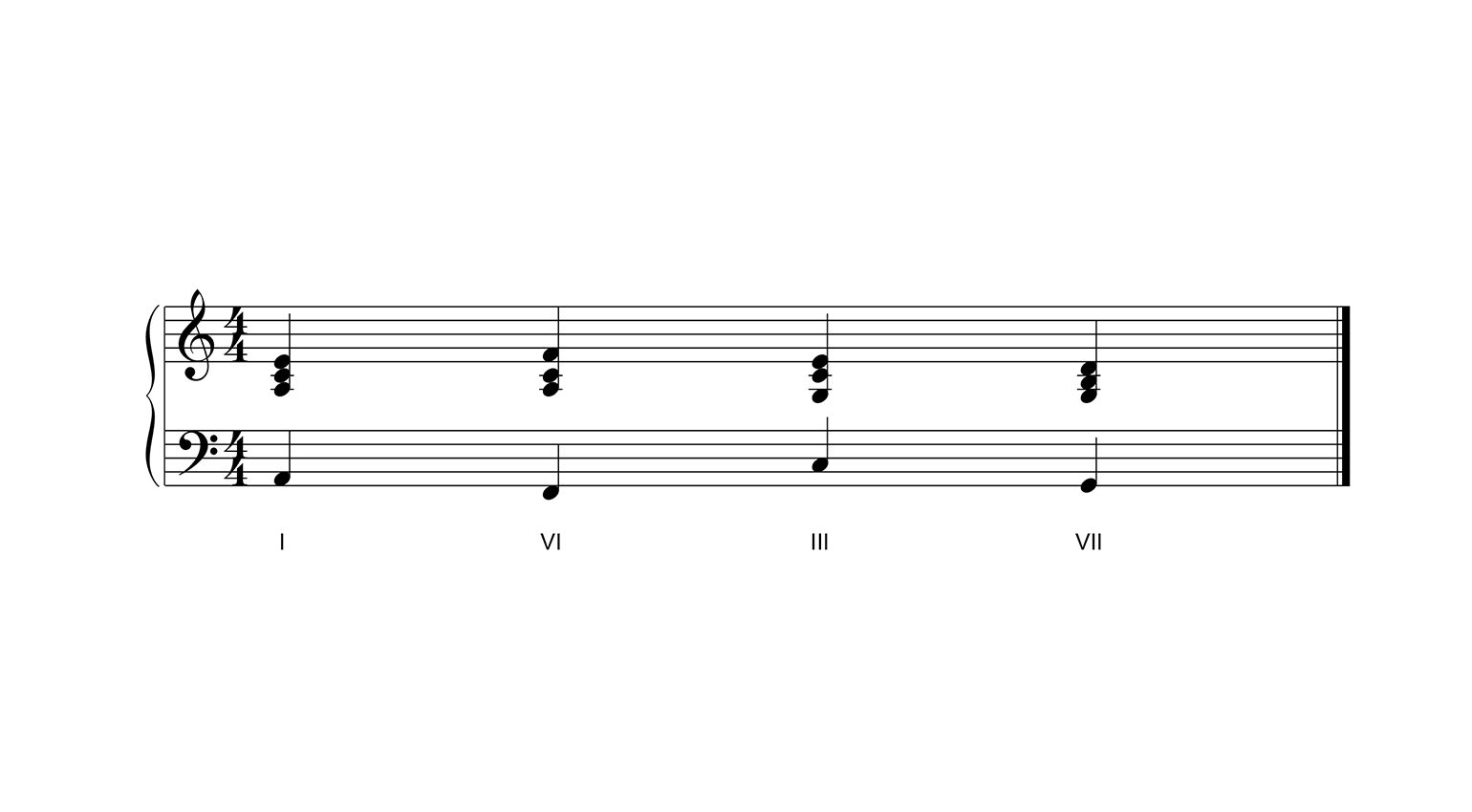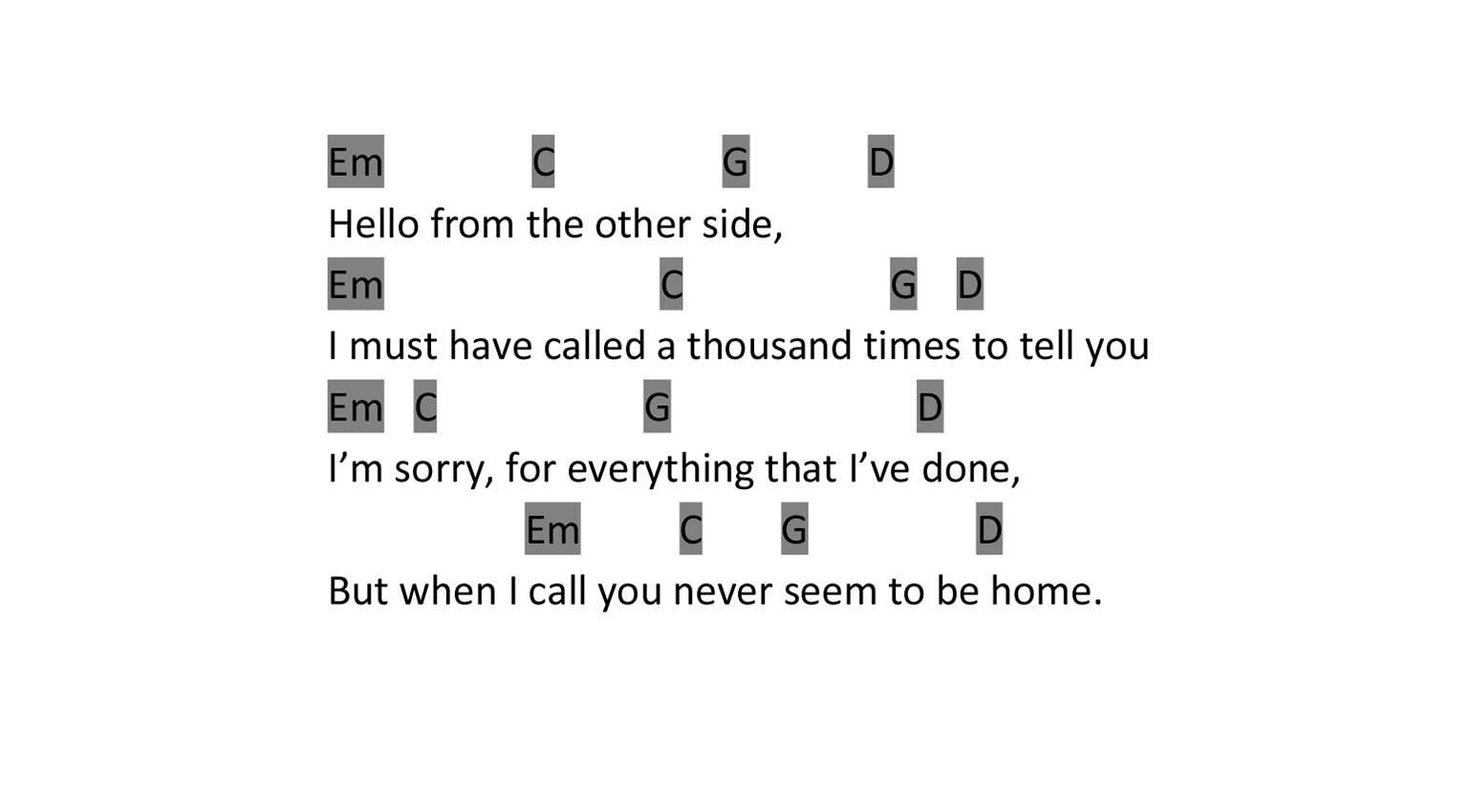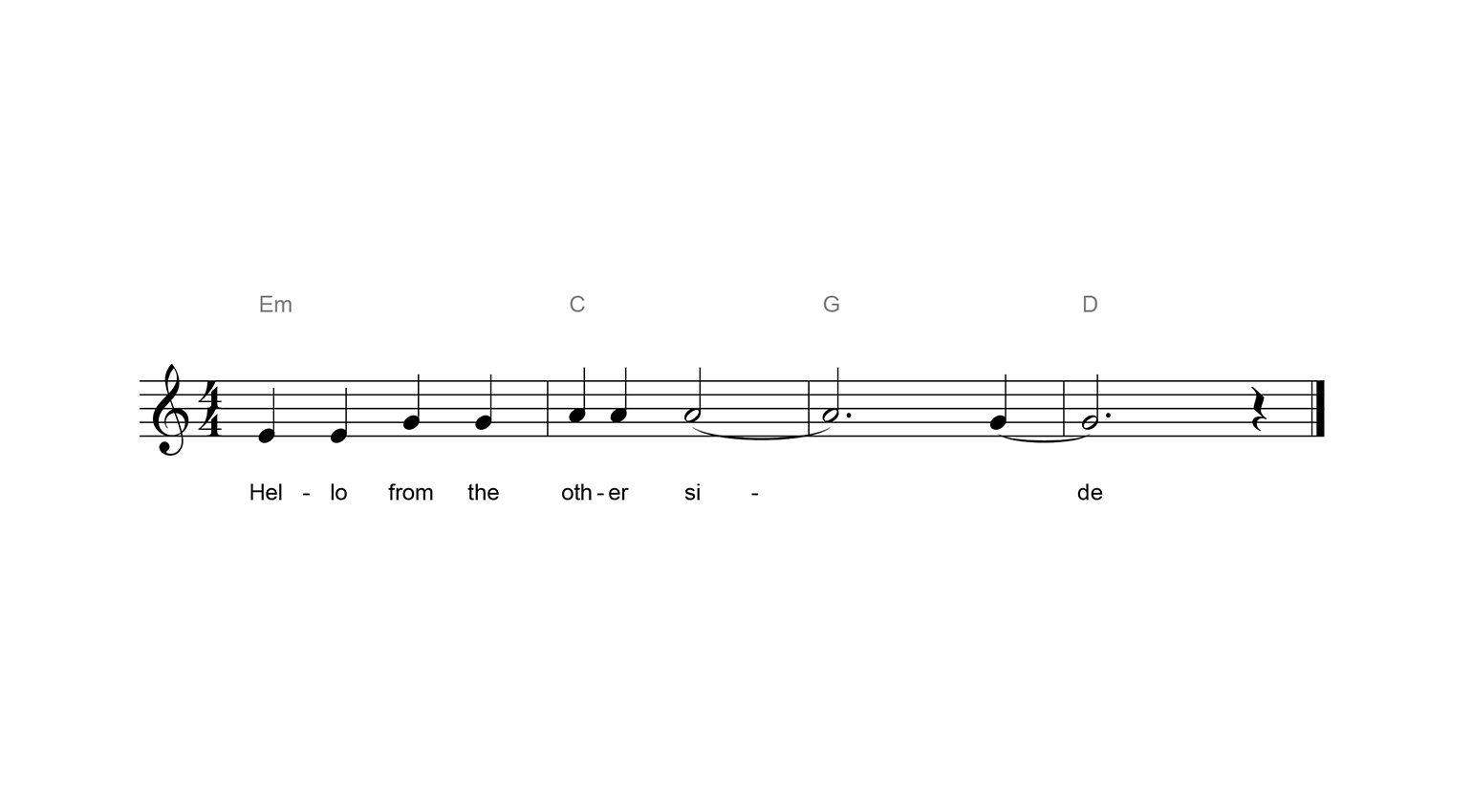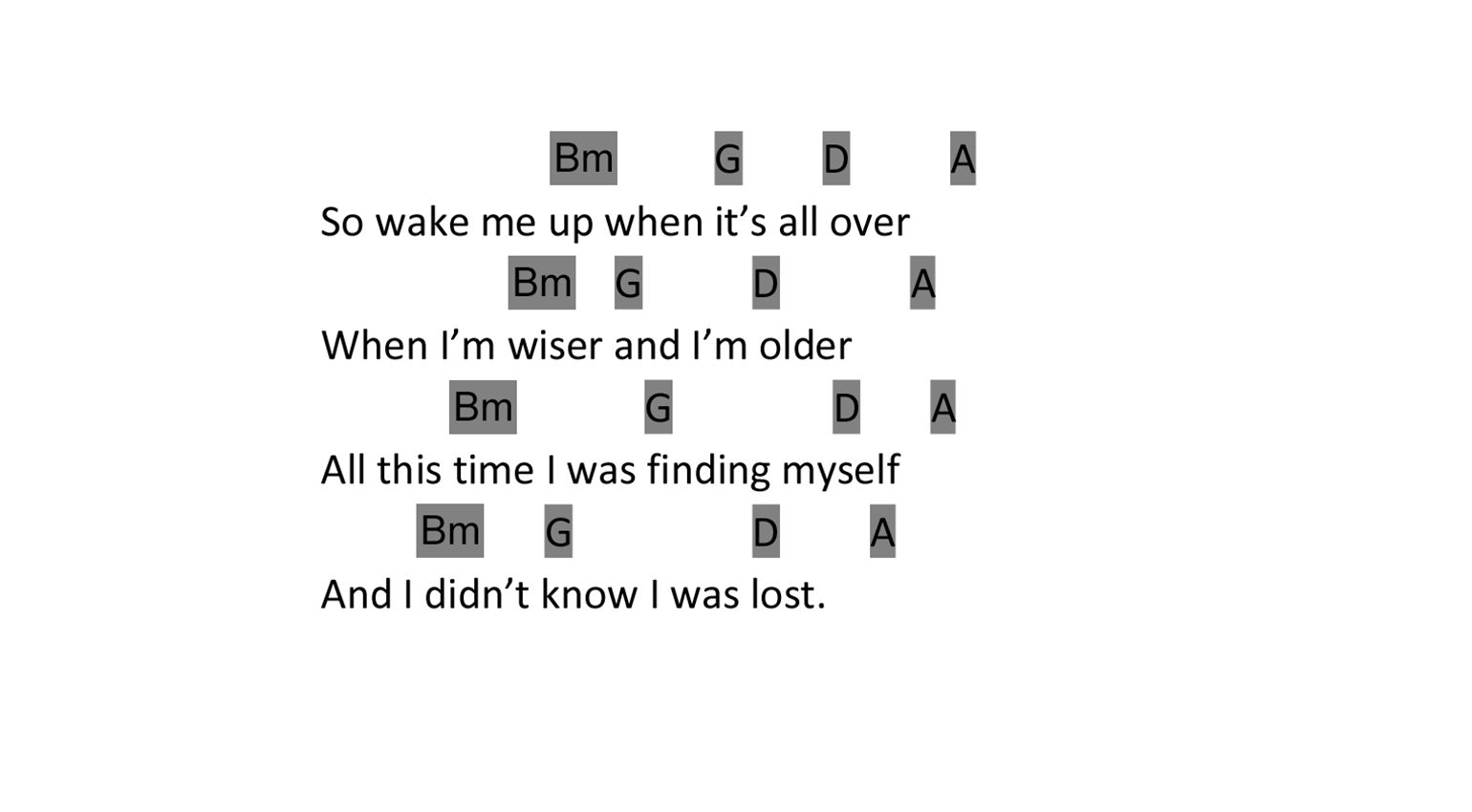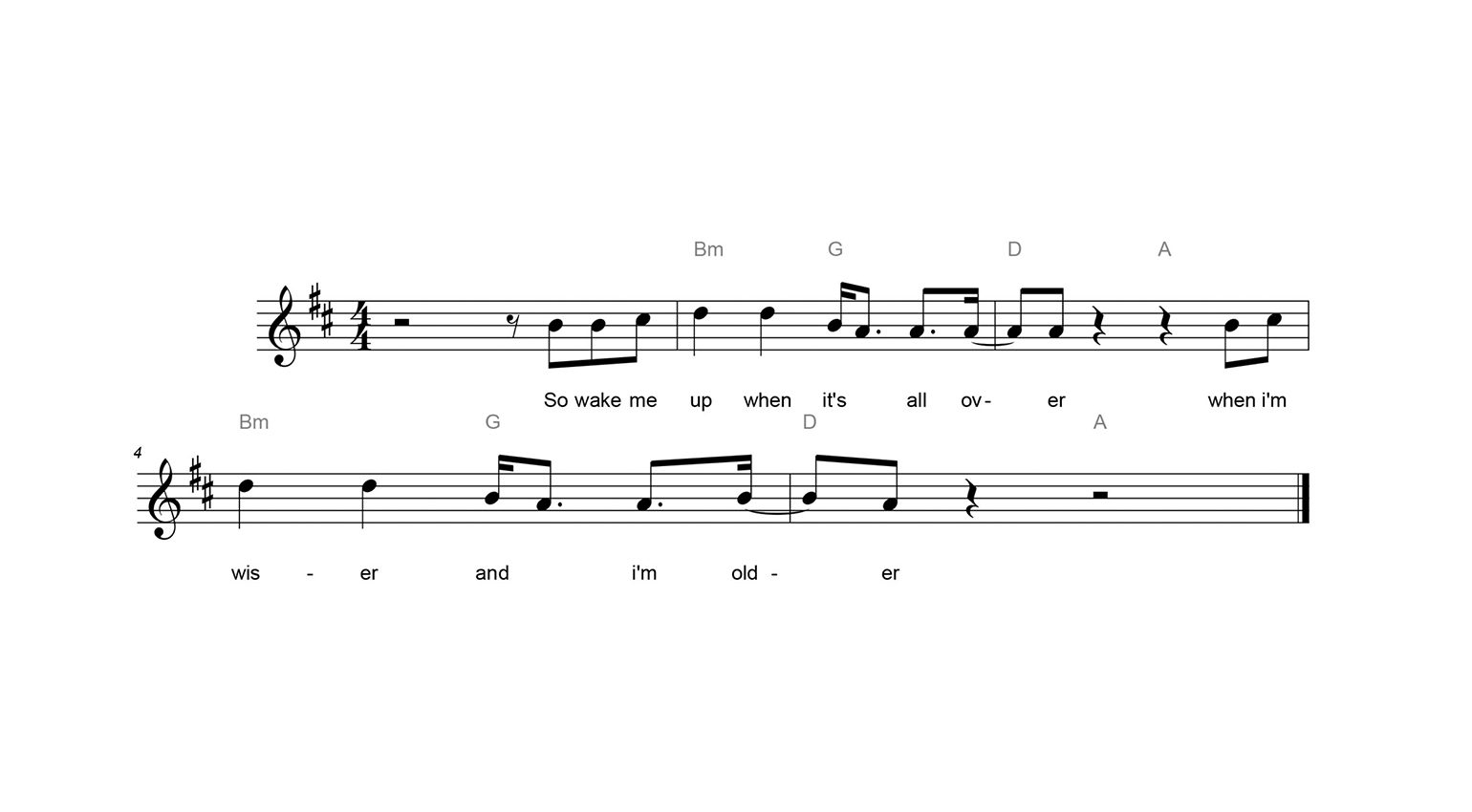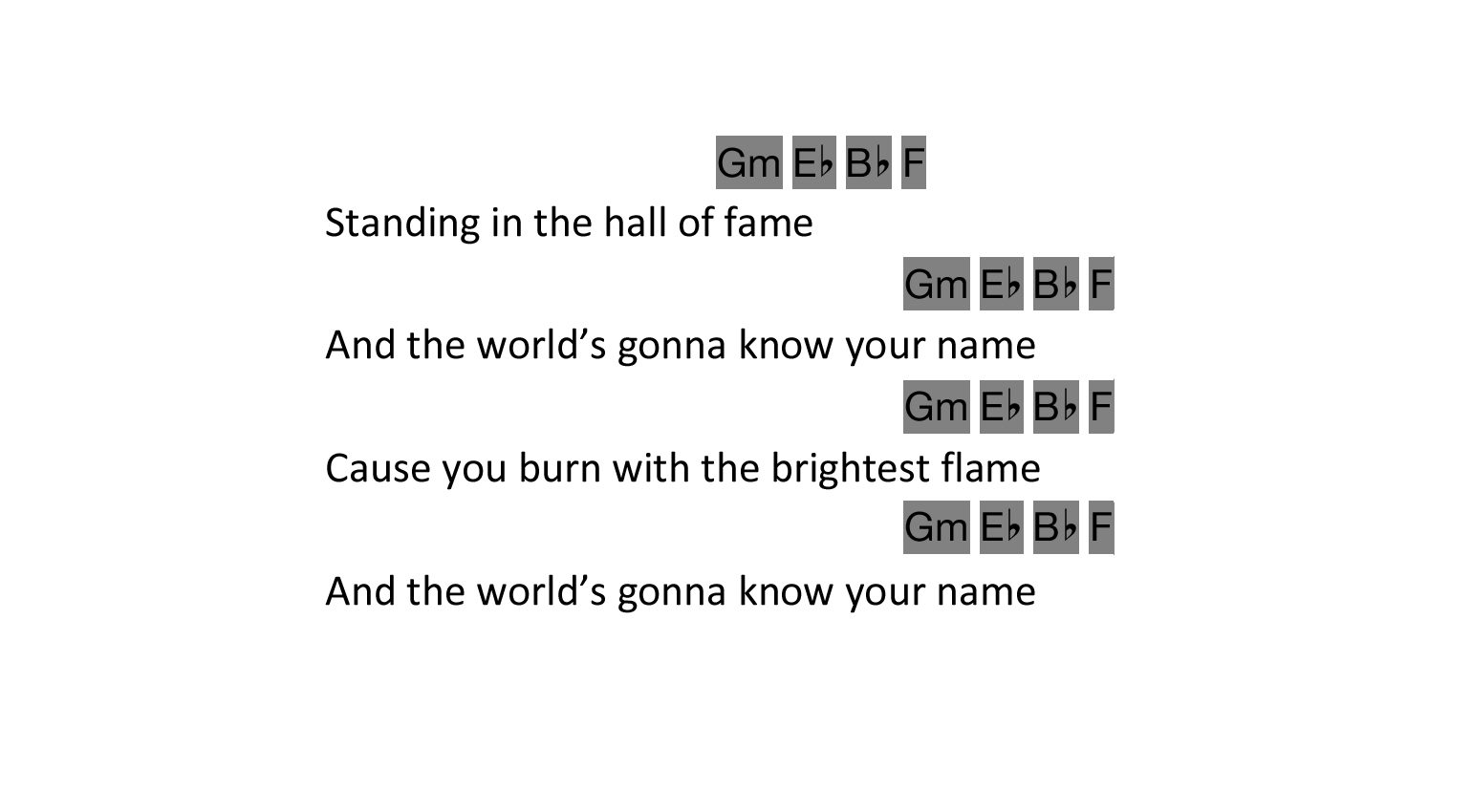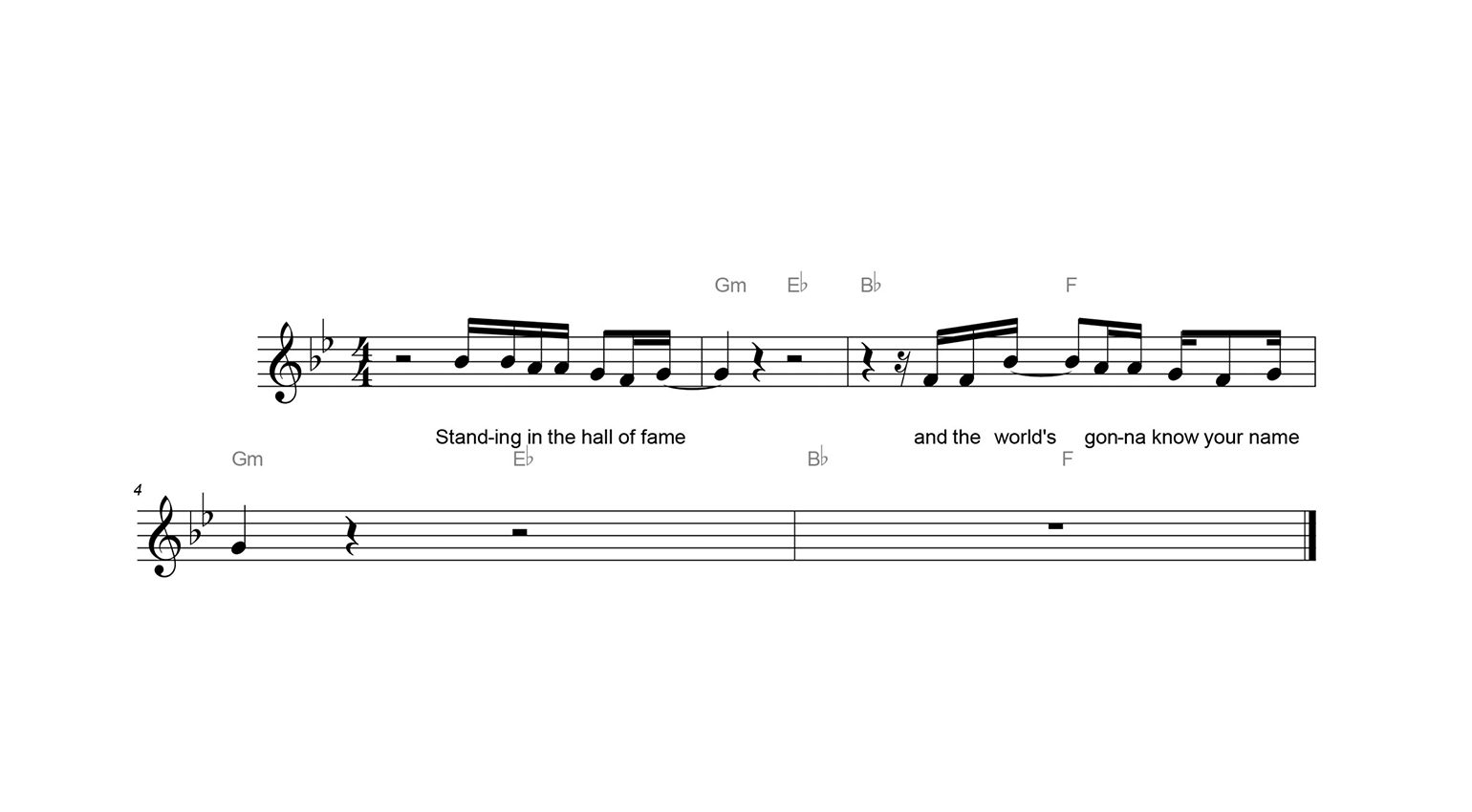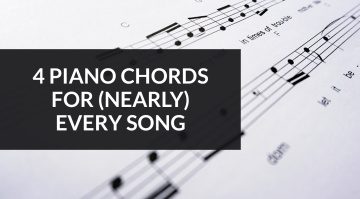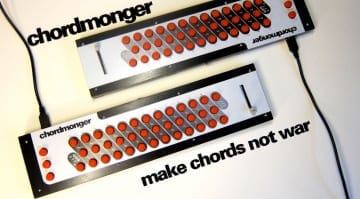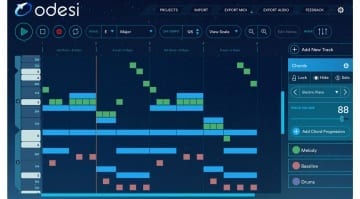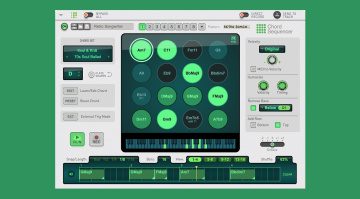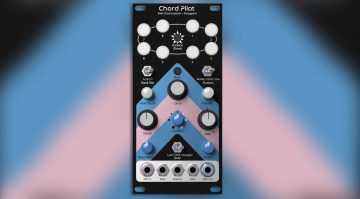Four Piano Chords for (nearly) every Song
What if we told you that you can play most songs on the piano using just 4 chords? Let’s go one step further: What do “Let It Be” by the Beatles, “No Woman No Cry” by Bob Marley, and “Love Yourself” by Justin Bieber have in common? Nothing at all, you say? You’re about to be surprised!
As different as they may be, all the songs I just mentioned have a very important common feature: they all use the same chords! It may sound unbelievable at first, but it’s actually true. All three songs are based on the same four piano chords. And it’s not just these three songs. You’ll soon discover that the list is almost endless. Artists from every corner of the world of music use the same chord progression over and over again!
Piano Chords come in many Shapes
Now, if all of those songs use the same chords, why do they sound so different? That’s because the actual chord progression is just one of many elements that make up a song. Since the keys, tempos, instrumentation, and, of course, the melodies are completely different, their similarity may not be that obvious.
In Western music, there are only twelve different notes, only seven of which make up a scale. And yet you can compose endless variations of melodies and rhythms. And that’s why hundreds, if not thousands of songs can get away with using the same four piano chords.
What is a Chord?
In music, a chord is a harmonic structure consisting of at least three different notes sounding simultaneously. A three-note chord is called a triad. Although they’re not typically considered to be true chords, even two notes played at the same time can imply a chordal function.
The beauty is: On the piano, you have a lot of possibilities for playing chords with two hands. If you then put them together according to certain rules and arrange them in different sequences, you can play lots of pieces with only four piano chords.
Is Music with only four Piano Chords boring?
So was grandma right after all? Do current songs really all sound the same? Whether or not you think that’s the case has absolutely nothing to do with facts (because they quite obviously don’t) and all the more with personal bias. But in every myth is a grain of truth, and in this case, it is: Yes, many songs use the same basic chord progression (and have done so for ages).
In practice, this means: If you learn these piano chords, you can play and accompany an incredible number of songs. Let’s look at some examples.
Four Piano Chords for (nearly) every Song: Part 1 – Major Chords
This is a C major scale:
If we now build a three-note chord on each note of this C major scale using the notes that C major provides us, we get this.
These are the seven basic piano chords that can occur in C major. Let’s take a closer look at their names.
We get three major chords, three minor chords, and one diminished chord: C-, F- and G-major, D-, E- and A-minor, and B-diminished. In addition, certain chords are parallel or related. For example, C major and A minor belong together, as do F major and D minor, and G major and E minor. This is important because a major chord can always be replaced by its parallel minor, so instead of C major, you can always play A minor. And this is exactly what happens in our chord progression. The famous chord progression we talked about in the beginning consists of the chords on the following scale degrees: I – IV – V – VI.
However, the chords aren’t usually used in this order. Instead, the most famous chord progression in the world looks like this: I – V – VI – IV.
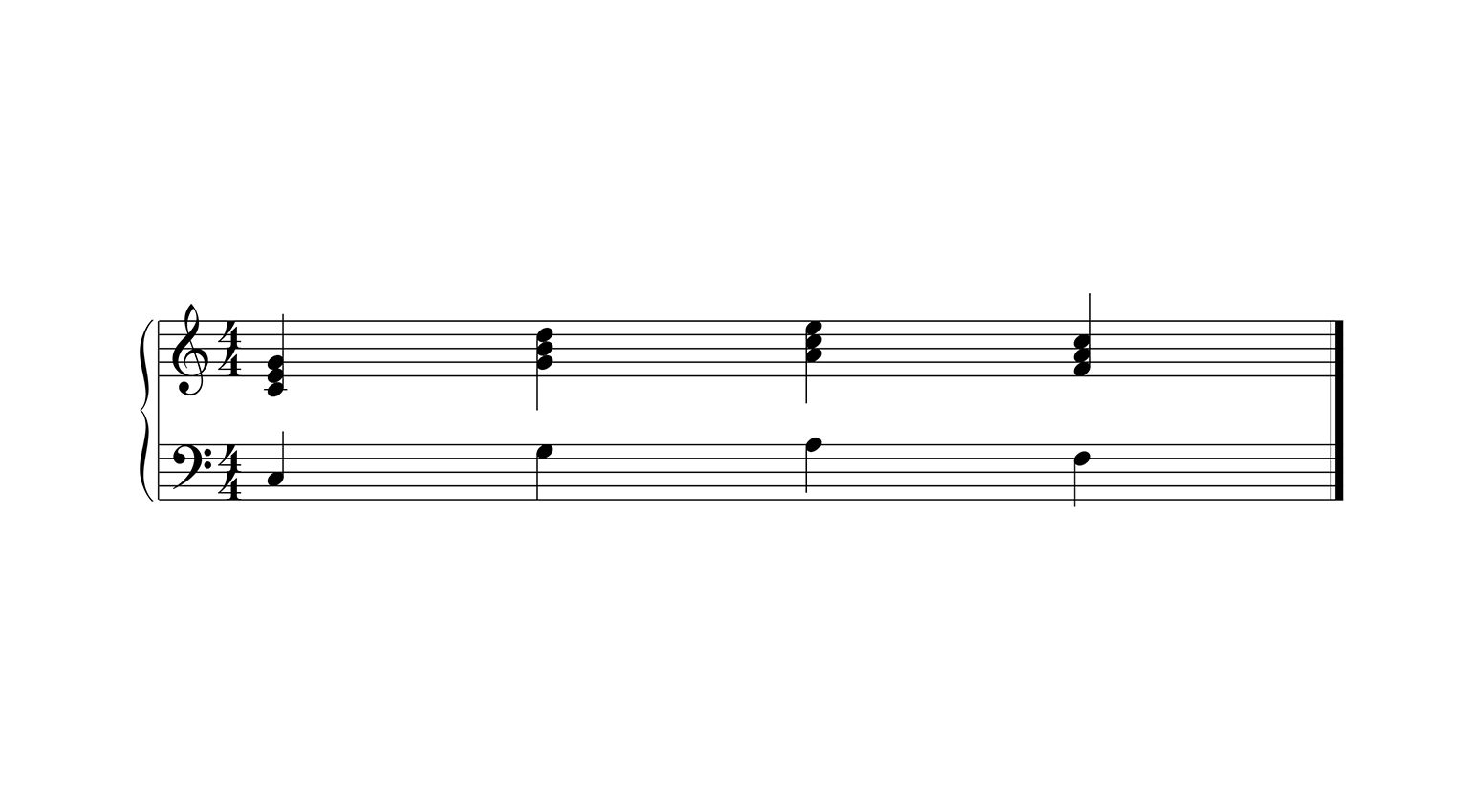
Four piano chords: Probably the most common chord progression in the world · Source: Tobias Homburger
Now it almost sounds like a song. However, using all chords in root position doesn’t sound very good. If we apply proper voice leading and use some of the chords in inversions, it will sound much better.
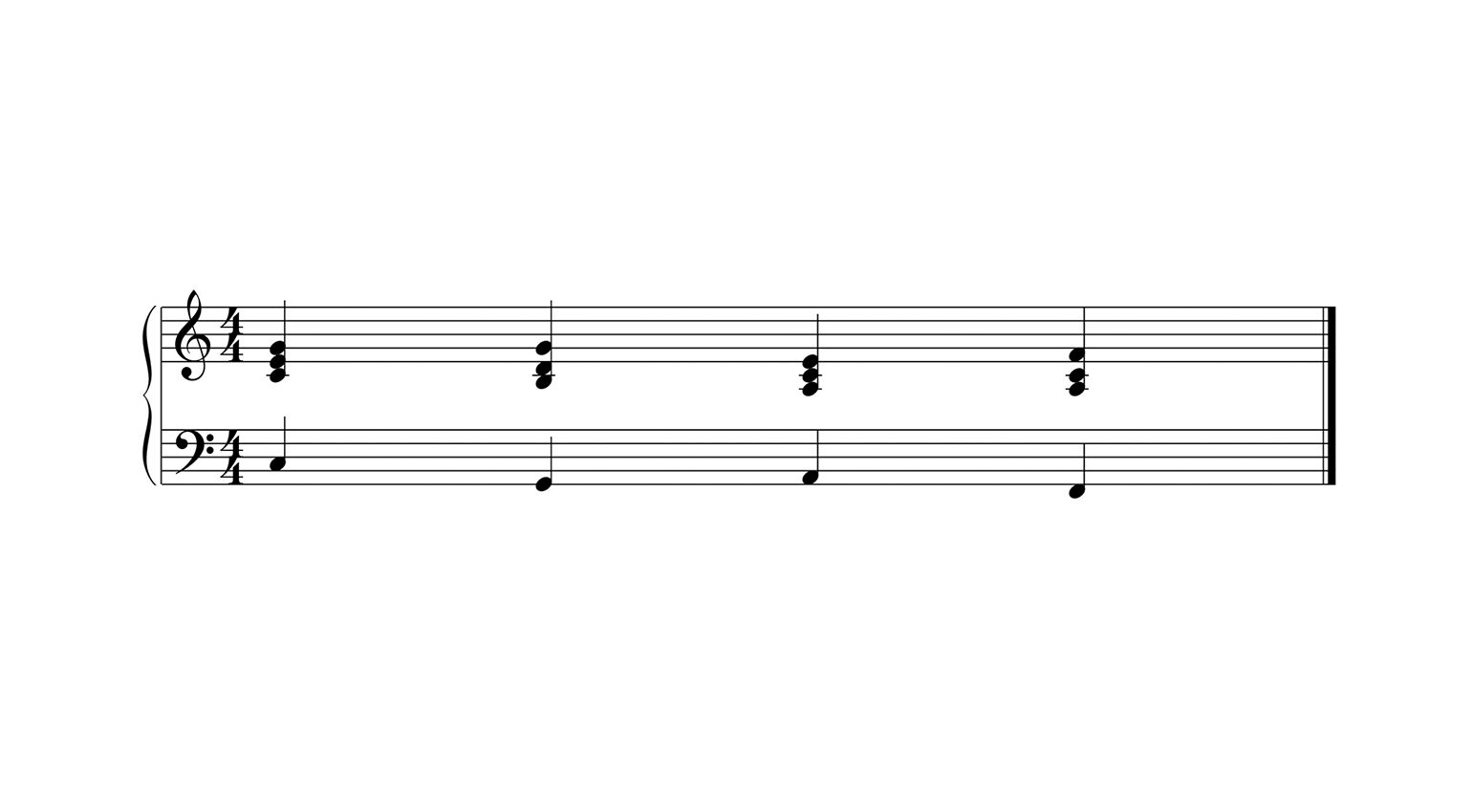
Every chord progression sounds better with proper voice leading and inversions · Source: Tobias Homburger
Remember that this basic progression is only a building block that is often modified or supplemented with additional chords. But there are indeed countless songs that use exactly this progression. Now let’s examine the songs mentioned at the beginning and see which four piano chords they consist of.
Four Piano Chords: The Beatles – “Let It Be”
Let’s start with “Let It Be” by the Beatles – without a doubt one of the most famous songs ever written. Take a look at the first verse:
Have you discovered our 4 chords? They even occur exactly in this order. As you can see, the pattern changes in the second line. Nevertheless, the chords used still come from the same four piano chords. Here’s the part written out with the melody.
Here you can listen to the entire piece. If you have already practiced the chords, just play along. Or just follow the notes. Also pay attention to the voice leading of the intro chords.
You are currently viewing a placeholder content from YouTube. To access the actual content, click the button below. Please note that doing so will share data with third-party providers.
Bob Marley – “No Woman, No Cry”
Now for something completely different. As you’ll see, our 4 piano chords also appear in reggae music.
And here’s the melody.
Let’s listen to the whole song.
You are currently viewing a placeholder content from YouTube. To access the actual content, click the button below. Please note that doing so will share data with third-party providers.
Justin Bieber – “Love Yourself”
Here’s a newer song originally written by Ed Sheeran for one of his albums, but he ended up giving it to Justin Bieber instead. The chorus goes like this.
Let’s look at the melody.
And here’s the whole track to play along.
You are currently viewing a placeholder content from YouTube. To access the actual content, click the button below. Please note that doing so will share data with third-party providers.
Isn’t that amazing? So many different songs and they all use the same chords? And there are countless other songs that consist of these four piano chords. Many of them also use them in this exact order. Remember, though, that the songs aren’t necessarily all in the same key – it’s about the chord progression in relation to the key of the song (I – V – VI – IV).
- Elton John – Can You Feel The Love Tonight
- Alphaville – Forever Young
- James Blunt – You’re Beautiful
- John Denver – Take Me Home, Country Roads
- Jessie J – Flashlight
- Charlie Puth – One Call Away
- Enrique Iglesias – Hero
- Billy Joel – We Didn’t Start The Fire
- Miley Cyrus – Party In The USA
- Justin Bieber – Baby
- Pink – Raise Your Glass
- Carly Ray Jepsen – Call Me Maybe
- Richard Marx – Right Here
And the list goes on and on. Maybe you can think of more songs with these four chords. In any case, you can play them all of them now!
Four Piano Chords for (nearly) every Song: Part 2 – Minor Chords
So far, we’ve only talked about songs in major keys. But there’s also a version of this chord progression in minor, which is almost as popular as the major version. But don’t panic, it’s not difficult. After all, C major and A minor are parallel keys, as we’ve already discussed. This means that they have the same accidentals and use the same notes. Looking at the A natural minor scale, we encounter exactly the same chords as in C major. This is the A natural minor scale:
Now let’s build a piano chord on each note again, using the notes that A natural minor provides.
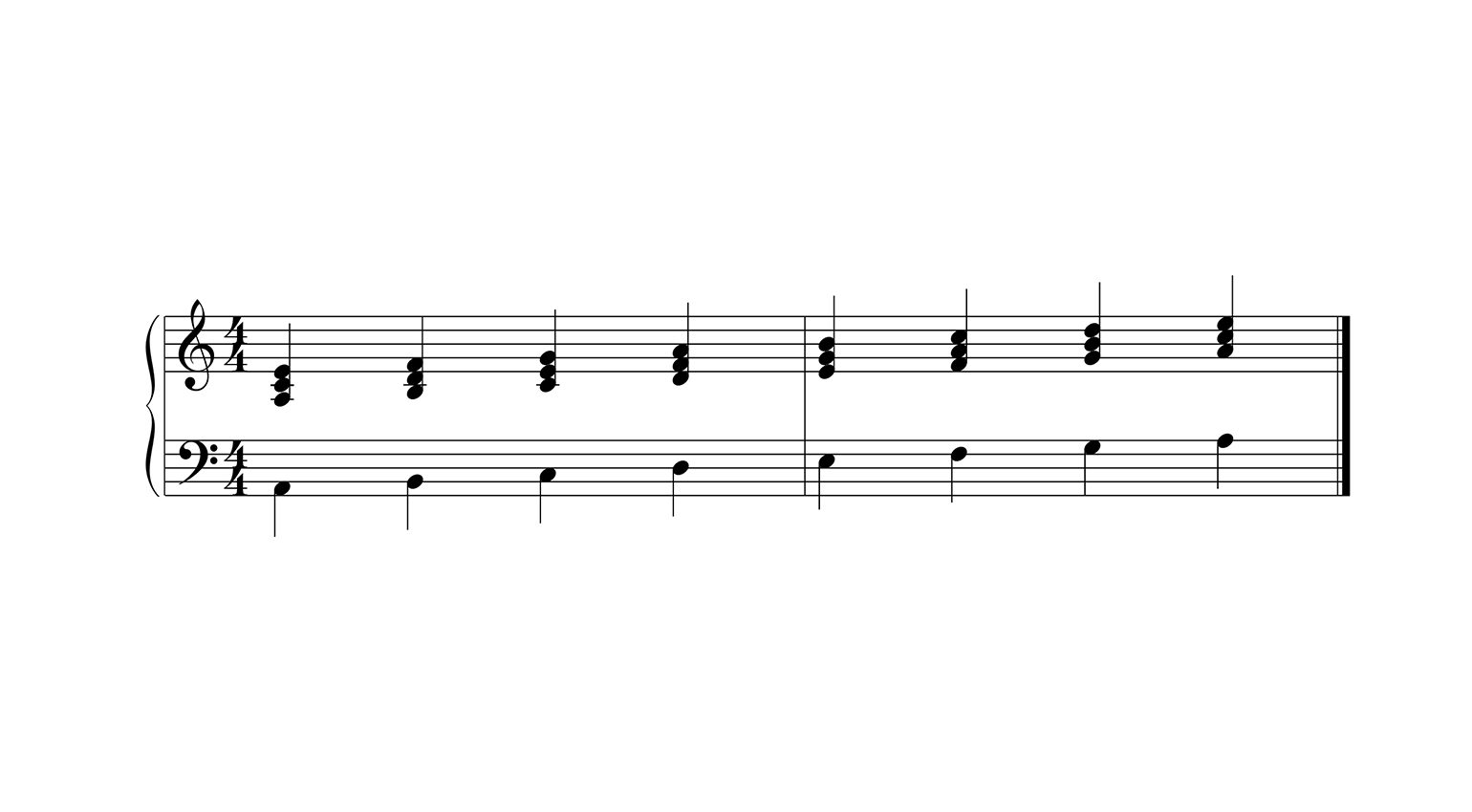
If you build a triad on each note of the A natural minor scale, you get these chords · Source: Tobias Homburger
And here’s what these chords are called.
As you can see, they are exactly the same chords as in C major, except that they start on A minor. So in minor, our four chords are the scale degrees I – III – VI – VII.
In a minor key, the sequence of the 4 piano chords usually looks like this:
Now let’s apply our voice-leading knowledge again, which gives us this result:
And immediately, this progression probably sounds like a song you know. So let’s take a look at some examples.
Four Piano Chords: Adele – “Hello”
Here’s the melody.
And here’s the video for you to play along.
You are currently viewing a placeholder content from YouTube. To access the actual content, click the button below. Please note that doing so will share data with third-party providers.
Avicii – “Wake Me Up”
And here’s the melody.
You can listen to the whole track in the video below.
You are currently viewing a placeholder content from YouTube. To access the actual content, click the button below. Please note that doing so will share data with third-party providers.
The Script – “Hall of Fame”
You are currently viewing a placeholder content from YouTube. To access the actual content, click the button below. Please note that doing so will share data with third-party providers.
Again, the list goes on endlessly. Here are a few more examples:
- Ed Sheeran – Photograph
- The Weeknd – I Can’t Feel My Face
- Wiz Khalifa – See You Again
- Robin Schulz – Ok
- Jon Bellion – All Time Low
- John Legend – All Of Me
- Lukas Graham – 7 Years
- Eagle-Eye Cherry – Save Tonight
- Luis Fonsi ft. Daddy Yankee – Despacito
There are many more examples of songs in minor that you can easily play with just 4 piano chords. Look for these chord progressions in your favorite songs – I promise that you’ll be amazed!
You are currently viewing a placeholder content from YouTube. To access the actual content, click the button below. Please note that doing so will share data with third-party providers.
Further Reading
To find out more about music theory and piano chords, check out these excellent books*!

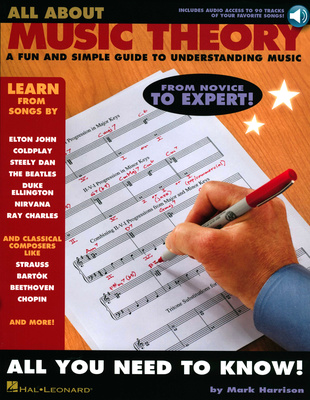

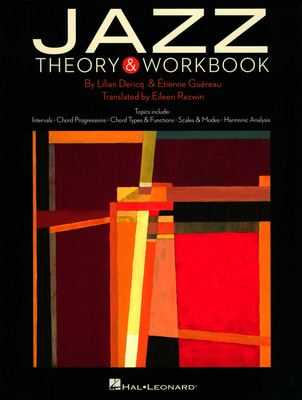



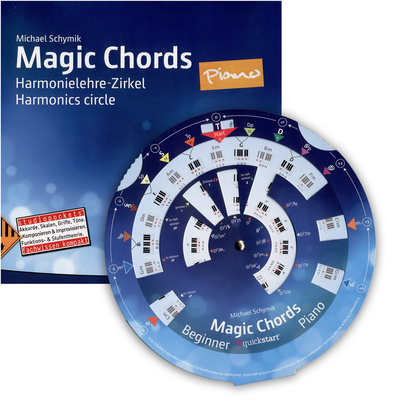
More about Music Theory
Note: This article was originally published in German on bonedo.de.
* This post contains affiliate links and/or widgets. When you buy a product via our affiliate partner, we receive a small commission that helps support what we do. Don’t worry, you pay the same price. Thanks for your support!
 4,3 / 5,0 |
4,3 / 5,0 | 